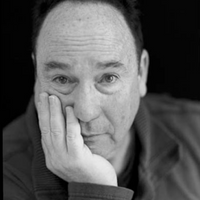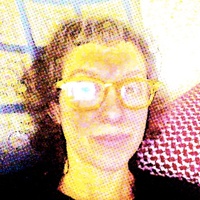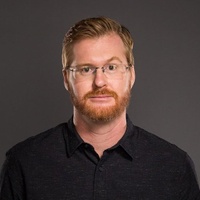As told to Sara Wintz, 2480 words.
Tags: Music, Performance, Inspiration, Process, Creative anxiety, Success, Focus.
On the tension-defying value of constant practice
Avant-garde percussionist William Winant on the ways in which his practice has evolved over the years to suit the needs of his many collaborators, why preparation is the best antidote for nerves, and why you should always seek out new work that will inspire and revitalize youDid you grow up in a musical family?
A musical family? No, I didn’t. My parents were in the television and movie industry. During my lifetime, my dad was an actor in television and in movies. In the movies, it was westerns, adventures, noir. But he mostly did television, all kinds of television from the ‘60s: The Twilight Zone, Gun Smoke, Combat, Perry Mason. My mom was a casting director for television shows like The Twilight Zone, Playhouse 90, The Mary Tyler Moore Show.
How did you know that you wanted to be a professional musician?
I think that happened in high school. Starting in junior high and definitely all through high school, I got into music, all kinds of music. By my second year of high school I knew I wanted to be some sort of a musician.
Did you idolize a particular musician or rock band?
In high school and junior high I was into tons of musicians and bands. Early on, bands like The Beatles and The Rolling Stones, Love, The Doors, and then, later, Jimi Hendrix, The Cream, Blind Faith, Peter Green, and Fleetwood Mac. In high school, I became interested in Chicago blues, jazz, and free jazz.
Because of a specific teacher or your peers?
It was with my peers. It had nothing to do with my teachers or what I was studying in high school. It was what I did after school or before school.
Did you like school?
Not really, I didn’t like school very much, no. But I did have a lot of friends that I met by going to school and it was through hanging out with those friends that I learned about different kinds of music, films, and art.
Was there ever a moment when you thought: “Oh, I’m an artist. This is what I do. This is what I want.”
In high school, it was all like a dream. I dreamt about doing this. The reality of it came about more when I was in college. When I actually started to play music and get paid professionally to make music, then I knew I was on my way.
You went to York University, in Toronto, right?
I went to all kinds of colleges. First, I went to Los Angeles City College and then I went to CalArts for a couple of years. Then I dropped out for a while to be in a band and then I went back to school at York University in Toronto. That’s where I finished my undergraduate work in music.
What was your first paying gig?
The first real gig and real tour was with Steve Reich and Musicians. That would’ve been in 1973. We did a tour of the United States; I was the junior member of that group. We toured around the West Coast, the Midwest, and Texas. Around that time, we were playing “Drumming,” “Music for Mallet Instruments, Voices, and Organ,” and “Four Organs.” That was probably my first real professional tour. But I was also working a little bit at that time with the Mystic Knights of Oingo Boingo and we were doing gigs around LA and the Bay Area.
When you’re practicing or performing, is there a process that you go through, in order to shift from the style of Steve Reich to the style of Oingo Boingo?
Well, with Steve Reich, I was practicing specific parts; if I was preparing for a new music gig with a new music ensemble, or with a percussion ensemble, I’d work on those parts. But, in general, I was taking lessons all the time, starting in high school: drum set or contemporary percussion lessons or studying orchestral techniques. I was constantly taking lessons with different people and constantly practicing when I wasn’t performing, maybe five or six hours a day. On top of that, practicing the music that I had to play, whether it was Mystic Knights music or Steve Reich music or music by a contemporary composer like John Cage or Lou Harrison or Mario Davidovsky. I was always, constantly practicing, hours and hours every day: technical things, reading things. And then, on top of that, I was practicing all the music that I had to learn to play for gigs. That’s what I did pretty much all day long and all week long for many years.
So it became like a seamless transition between playing in one style or playing another.
Right. It all kind of blended together because I was interested in everything at that time. I was also very interested in being grounded and having a good technique in playing all the different instruments, whether it was drum set or snare drum or mallet instruments or timpani. I was practicing all of that stuff and studying with various teachers who were good at teaching all of that stuff. I had three main teachers in LA who really helped me: my drum set teacher Clarence Johnston, my percussion teacher, Karen Ervin, who was, like, my hero, and then at CalArts, John Bergamo. I also took lessons with people from the Los Angeles Philharmonic, just to cover all the bases, so to speak.
Did you continue taking lessons after college, into your professional career?
I was studying music constantly, starting in high school and all through the ‘70s. Even when I wasn’t in college, I was taking private lessons with different people. I took tabla lessons at the Ali Akbar Khan School, an Indian music school in Marin, private lessons with an Indonesian music teacher, or played in a private gamelan. Studying music and teaching music was all part of the same process as playing music. I was either playing music, I was studying music, or I was teaching music, but it was all part of the same thing.
Sometimes you play solo, sometimes in an ensemble. What’s helpful or unhelpful about working with others?
I did get a reputation for playing solo pieces or pieces that I either premiered, or were written for me, but in general, I prefer playing with other musicians, whether it’s chamber music or playing in a band or with some sort of an improv group. I’m always more interested in working with people or working in a chamber music situation than in being a solo percussionist. Some people have made a career out of being a solo percussionist or a solo cellist who goes around playing solo cello concertos. I’m more interested in playing with other people than in being a soloist.
What do you like about performing in an ensemble?
I like playing with other people. I like the social aspect of it, and I like the music making aspect of it, and collaborating with other people. It’s less lonely.
You often work with graphic scores and graphic notation: how do you prepare to perform a graphic score?
Sometimes, if the pieces have already been performed or if they’re older pieces, like a Bussotti piece or an Earl Brown piece or a Morton Feldman piece, what I’ll do is I’ll try to find recordings of my favorite musicians playing those pieces and use that as a way of learning about the pieces and follow along with the score. Sometimes I listen to a lot of different versions of a piece before actually attempting to learn it myself. And I get an idea of the vibe of the piece by listening to other performances and things like that. (Not that I’m going to try to totally copy that, but to get a sense of it.)
And then also, depending on the composer, sometimes I’ll listen to other works by the same composer and see what that music’s like, and get a knowledge of the kind of music and the kind of interests that that composer has. It’s sort of like, I try to get into the composer’s head. And then, as I said, I’ll listen to performances and maybe look at other graphic scores that that composer has done when I’m learning a score that uses nontraditional notation.
A good example of that would be John Cage’s 27’ 10.554” for a percussionist. It’s a total graphic score. I would study other Cage pieces that were in a similar style, maybe for piano, or for other solo instruments, see how those are interpreted, and listen to other recordings. I would do the same with something like Morton Feldman’s King of Denmark, which is a very famous graphic score and maybe listen to Max Neuhaus’s version of it, he had many versions, or listen to other people’s versions and that would help. It’s really great if you can work with or talk with the composer in person, or work with the composer directly, or work with somebody that has worked with the composer very closely.
There’s a lot of research involved in performing music like that.
There can be.
What kinds of questions do you ask the composer, if you are able to? Do you perform the piece for them and then ask something like “How does this sound?” “Does this sound okay?” Are there more specific questions that you ask?
Playing the piece for the composer, performing in front of the composer, is the best way to get input from the composer about what you’re doing. That’s absolutely the best way. The composer will immediately tell you what they think. I always ask, “Is there anything you want differently?” “Is there something else I can do?” “Am I close to what you imagined in your head?” But it is really ideal to be able to work directly with the composer and play the piece for the composer. In my experience, working directly with the composer before performing a new piece that’s never been performed before, is ideal. And then second would be working on a piece with somebody who has worked directly with the composer and is very familiar with that person’s work. For example, when I was learning a lot of Stockhausen’s music, I was working with Jim Tenney, who had worked with Stockhausen and did the premiere of this piece called Kontakte back in the ‘60s. When I was working on that piece, Jim Tenney answered a lot of questions I had about the score, how to practice a section. It was good to work with somebody who had actually worked with the composer and who was familiar with the music.
Sounds like a lot of putting yourself out there, meeting people, and asking very specific, pointed questions. Have you ever been nervous about that? If so, how did you (or do you) get over it?
Just by being as well prepared as I can be. But I was always nervous, whether it was meeting a famous performer or meeting a famous composer. I was always very nervous about that. I just try to be as well prepared as possible, before meeting with the composer or meeting with a performer. In that first meeting, I’m always going to be extremely nervous. Sometimes I’m meeting with people I idolized in high school: all of a sudden, I’m working with Xenakis or all of a sudden, I’m working with John Cage or all of a sudden, I have my first rehearsal with Yo-Yo Ma. These are people I’ve listened to all my life, that in high school, I had no idea I would ever meet, let alone work for or have these people writing pieces for me.
Do you still get nervous? Or was that just in the beginning?
No, no that’s always been the case. I’m always very shy. I’m always nervous meeting new people and they don’t have to be musicians. They can be anybody.
Are there specific things you’ve said or done in order to be less nervous? Around socializing or around performing?
No, not really. The more prepared I am, the less nervous I am. The more I practice, the less nervous I feel. But I’m always nervous and once I meet whoever I’m working with, and once they’re happy, then all my nervousness or anxiety goes away.
Because you’re focused on the task?
Yeah, and because I’m prepared. But when I’m meeting with somebody for the first time, playing their music for them for the first time, or rehearsing with a group for the first time, I’m always extremely nervous. I even get nervous to this day, going out and having to perform. Even pieces I’ve performed many times, I still get a little nervous.
What are your favorite things to do on the drums?
I like playing everything. I like playing with certain people and friends. Playing music with wonderful musicians and friends makes me really happy. Over the years I’ve played and recorded a lot of music with violinists, cellists, and pianists.
It sounds like you’ve spent a lot of time practicing. How do you avoid burnout?
I try to find new music, work with younger composers who I don’t know, whose music might inspire me. I have spent many hours practicing one piece, let alone hundreds of hours practicing all kinds of music. As I get older, I might be doing a little less of that, but I’m always on the lookout for something new which is going to inspire me, or a concert that will revive or revitalize me. That just happened, actually. I was in New York and I went to a concert that totally inspired me. It was a friend of mine who was playing with a new group of younger musicians and it was very inspirational. Very beautiful. When I was a young kid in high school/college, I’d go see things that totally blew my mind, that I knew I would remember forever, that inspired me to want to be a musician. It’s nice that, still, even now, I can go to a concert and be totally blown away or inspired. Actually, I have to say, in the last year, I’ve seen two or three shows that totally blew my mind.
When you’re working on something and you need to take a break, what are your favorite things to do?
Take a walk in the woods or near the beach. Go swimming or take a little short road trip, get some nice food, watch an old movie. Did I say get a nice meal? Get a nice meal. Lately I’ve been going into nature and walking around, going swimming. That’s been very inspirational.
William Winant Recommends:
Bombshell: The Hedy Lamarr Story
Love - Forever Changes
Jimmy Durante (His interpretations of the classic American songbook are like nobody else’s.)
Hank Williams and Lefty Frizzell
Nyum Bai Cambodian restaurant in Oakland




